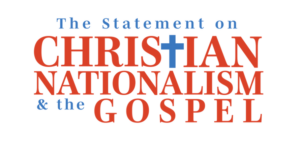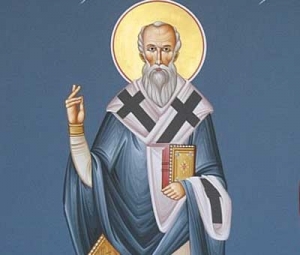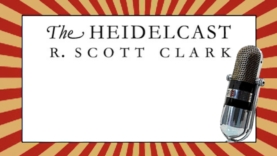According to John Witte Jr., Althusius did consider the question of religious liberty, whether a private person has the right to “alter amend, or even abandon” the duties prescribed under the first table (the first four commandments) of the Decalogue. Continue reading →
Christ and Culture
Malthus or Althusius? An Introduction To A Pioneering Reformed Social Theorist (Part 1)
We seem to live in a Malthusian age—an age of increasing scarcity, or perhaps fear of scarcity, where concern over how to divide an economic (and environmental) pie of limited size (called a “zero sum game”) has replaced the idea of expanding . . . Continue reading →
Sub-Christian Nationalism? (Part 20)
Perhaps the most fundamental problem with the Statement appears most clearly in its final article, “On ‘Neutrality’ and the Separation of Church and State.” WE AFFIRM that the Church and the state each possess their own sphere of influence. For example, church . . . Continue reading →
Sub-Christian Nationalism? (Part 19)
While Christian Nationalists busily try to put the theocratic band back together (i.e., to restore Christianity to its privileged place in American society), the culture continues to disintegrate at an alarming rate and to an alarming degree. Christians do well to spend . . . Continue reading →
You’ve Been Invited To A [Fill In The Blank]: Should You Go?
As the culture descends further into post-Christianity and even the memory of Christianity fades in the minds of most Westerners, Christians will find themselves facing many of the same questions faced by the Christians of the first and second centuries. Many of . . . Continue reading →
Sub-Christian Nationalism? (Part 18)
It is useful to review Augustine’s humane account of just war to refresh our memories or to introduce the reader to Augustine’s approach to war, as a background to considering the Statement on just war. In his Reply to Faustus (c. 397; . . . Continue reading →
Vermont Accused Of Discriminating Against Christian School
Alliance Defending Freedom attorneys representing Mid Vermont Christian School and two families filed a federal lawsuit Tuesday [November, 21, 2023] against Vermont officials for denying the Christian school and its students from participating in the state’s tuition program and sports league because of . . . Continue reading →
Sub-Christian Nationalism? (Part 17)
“My kingdom is not of this world. If my kingdom were of this world, my servants would have been fighting, that I might not be delivered over to the Jews. But my kingdom is not from the world.” (John 18:36) One of . . . Continue reading →
World And Life View: License To Baptize? (Part 3)
In an essay dated 1 March 1996, Fred Pugh sketches what has become a fairly standard view among many neo-Kuyperians.1 His account probably obviously leans to the cultural-political right, and the antithesis is established as “secular humanism.” Continue reading →
Wasteful Gaming, Providence, And Being Truly Counter-Cultural
In 2024 when we see the participle gaming, we are likely to think of computers and headsets, but for centuries the word signified gambling. It still does. Several state governments in the USA have “gaming commissions” or the like. One of the . . . Continue reading →
World And Life View: License To Baptize? (Part 2)
The concept of a worldview is essential. Derived from the German Weltanschauung, the English noun denotes “a particular philosophy of life or conception of the world.”1 Worldviews are like belly-buttons. Everyone has one. Continue reading →
Distinguishing Spheres Affirms Christ’s Lordship Over All Things (Part 4)
Last time we saw that the very reason Calvin adopted the language of a “twofold kingdom” (i.e., the doctrine that God’s kingdom is one and administered in two distinct spheres) was to oppose the Libertines and Manichaeism. But it remains to be . . . Continue reading →
World And Life View: License to Baptize? (Part 1)
James Bond, Agent 007, had a “license to kill.” There are Reformed folk who also seem to have a license of some sort or other, based on what they call “the Christian world and life view” (hereafter, CWLV). This concept is interesting . . . Continue reading →
Distinguishing Spheres Affirms Christ’s Lordship Over All Things (Part 3)
The Reformation brought about a significant shift in the theology, piety, and practice of parts of the Western church. One theological shift, which was evident in aspects of the practice of the Reformed church, was its insistence that the church was a . . . Continue reading →
Sub-Christian Nationalism? (Part 16)
God the Holy Spirit worked so powerfully among the apostles (Acts 5:12) that people came to think their ill would be healed if they were laid on cots so that the apostle Peter’s shadow fell on them (Acts 5:15). Through the apostles, . . . Continue reading →
Distinguishing Spheres Affirms Christ’s Lordship Over All Things (Part 2)
The post-apostolic Christians understood what Jesus and Paul were teaching about the kingdom. They confessed universally, in the Rule of Faith, from the earliest decades of the second century, that God is “almighty” (omnipotens). They did battle with radical dualists, whether Gnostics . . . Continue reading →
Distinguishing Spheres Affirms Christ’s Lordship Over All Things (Part 1)
It is repeatedly argued (especially on social media) that unless one affirms that Christ exercises his dominion over all of life in the same way then one has denied Christ’s Lordship. Of course this way of arguing assumes what it has to . . . Continue reading →
Heidelminicast: Comedians Considering Christ?
In this episode Dr Clark plays clips from a popular podcast where two well-known comedians discuss Christ. Continue reading →
Sub-Christian Nationalism? (Part 15)
Between 1513 and 1519, as he lectured through the Psalms, Romans, Galatians, Hebrews, and the Psalms again at the University in Wittenberg, Martin Luther (1483–1546) not only became an Augustinian anti-Pelagian in soteriology (sola gratia); in that same period he also recovered . . . Continue reading →
Dirt
You stood far off, not aloof but above, And from the heavens looked down with pity At workers toiling in futility Made the fatal choice to descend, for love. And step by step you practiced kenosis,1 Removing the diadem from your head . . . Continue reading →







